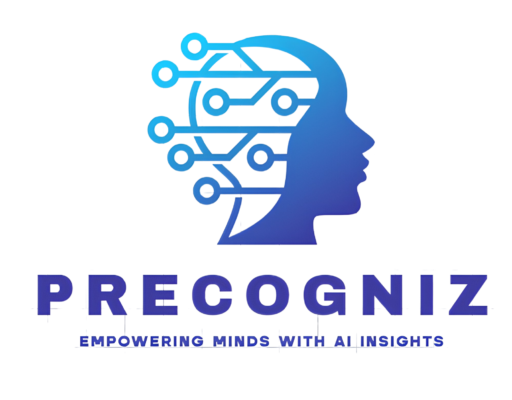-
0 Comments
Texas Regulates AI: New Laws & Their Impact
The Lone Star State is making its mark in the rapidly evolving world of artificial intelligence (AI). Texas, known for its robust business environment, has recently enacted legislation aimed at regulating AI, a move signaling a proactive approach to managing the potential risks and harnessing the benefits of this transformative technology. This post delves into the specifics of these new laws, exploring their potential impact on businesses, individuals, and the future of AI development within Texas.
Understanding the Driving Force Behind Texas’ AI Legislation
The impetus behind Texas’ push for AI regulation stems from a confluence of factors. Firstly, the increasing prevalence of AI in various sectors, from healthcare and finance to transportation and manufacturing, necessitates a framework to ensure ethical and responsible use. Concerns surrounding algorithmic bias, data privacy, and the potential displacement of workers due to automation have fueled the need for legislative intervention. Secondly, Texas aims to foster innovation while mitigating potential risks. By establishing clear guidelines, the state hopes to attract AI-related businesses while simultaneously protecting its citizens.
The legislation isn’t about stifling innovation; rather, it’s about responsible innovation. The overarching goal is to create a regulatory environment that encourages the development and deployment of AI while simultaneously addressing potential societal challenges. This balance is crucial for Texas to remain competitive in the global AI landscape.
Key Aspects of the New Texas AI Laws
While the specifics of the legislation are complex and require careful analysis, some key aspects are readily apparent:
Data Privacy and Security
Data privacy is a major focus. The new laws likely incorporate provisions designed to protect sensitive personal information used in AI systems. This could include stricter requirements for data collection, storage, and usage, potentially mirroring or exceeding existing federal regulations like GDPR (in the case of European data). Expect to see increased transparency requirements, allowing individuals more control over how their data is utilized by AI algorithms. Enhanced security measures for AI systems are also likely, aiming to prevent unauthorized access, breaches, and misuse of sensitive data.
Algorithmic Transparency and Accountability
The laws likely emphasize algorithmic transparency, demanding greater understanding of how AI systems make decisions. This involves disclosing the data used to train AI models, the algorithms themselves (to a reasonable extent), and the potential biases embedded within. Accountability is another critical component. Mechanisms for redress in cases of AI-related harm, whether due to bias, malfunction, or other causes, are likely included. This could involve establishing clear lines of responsibility and potentially creating avenues for legal recourse for individuals affected by faulty AI systems.
Bias Mitigation and Fairness
Addressing algorithmic bias is a significant challenge. The new legislation likely mandates efforts to identify and mitigate bias in AI systems. This might involve conducting audits, implementing fairness metrics, and requiring ongoing monitoring for bias. The goal is to ensure that AI systems are used fairly and equitably across different demographics and social groups. Failure to demonstrate good faith efforts in bias mitigation could lead to penalties.
Employment and Workforce Impacts
The rapid advancement of AI raises concerns about job displacement. While the legislation may not directly address this, it could include provisions to support workers affected by automation. This might involve funding for retraining programs, initiatives to help workers transition to new roles, or other measures designed to mitigate the negative socio-economic consequences of AI-driven job losses.
Impact on Businesses Operating in Texas
The new AI regulations will have a profound impact on businesses operating in Texas. Companies that utilize AI in their operations will need to adapt to comply with the new legal framework. This will involve:
- Conducting thorough audits of their AI systems to assess compliance with data privacy, algorithmic transparency, and bias mitigation requirements.
- Implementing robust data security measures to protect sensitive information.
- Developing transparent documentation of their AI algorithms and data usage practices.
- Investing in resources and expertise to address potential algorithmic bias and ensure fairness in their AI systems.
- Creating mechanisms for addressing complaints and resolving disputes related to the use of their AI systems.
Failure to comply could result in significant penalties, potentially including fines, legal action, and reputational damage. However, proactive compliance can also present opportunities for businesses, such as enhanced trust with customers and improved brand image.
Looking Ahead: The Future of AI in Texas
Texas’ proactive approach to AI regulation positions the state as a leader in responsible AI development. While the initial implementation may present challenges for businesses, the long-term benefits are likely to outweigh the costs. By establishing a clear regulatory framework, Texas can attract AI-related businesses, foster innovation, and protect its citizens. The new laws are not intended to hinder technological advancement but to guide it toward a path that is ethical, beneficial, and sustainable. The success of this regulatory approach will depend on the clarity of the laws, the effectiveness of enforcement, and the willingness of businesses to embrace responsible AI practices. The coming years will reveal the full impact of these regulations and how they shape the future of AI in Texas and beyond.

